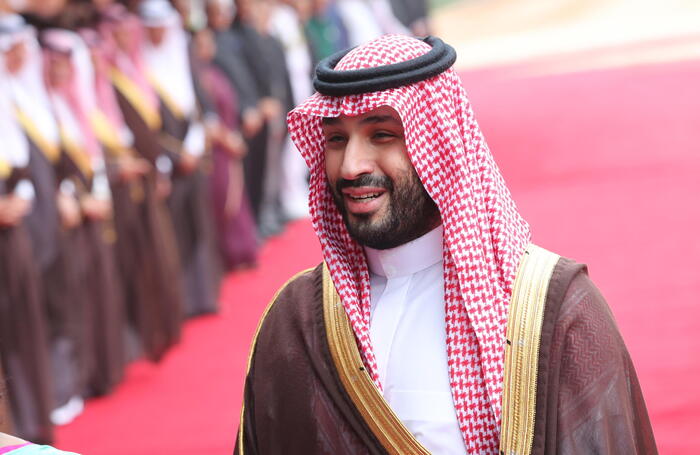While most of the world's stadiums vibrate again with the cries of the fans after the forced stoppage due to the coronavirus crisis, in China they remain empty, and the future of football is becoming increasingly uncertain.
The recent decision to give up its status as the host of the Asian Football Confederation (AFC) Cup, scheduled for the summer of 2023, has dealt a blow to the aspirations of millions of fans in the nation. most populated on the planet.
Without the credentials that the organization of the event would grant him before FIFA, the dream of holding a World Cup in the Asian giant seems to have been parked on a much more distant horizon.
The AFC reported in a statement on the 14th that China has declined to host the Asian Cup citing "exceptional circumstances caused by the pandemic."
24 teams had to play the continental tournament from June 16 to July 16, 2023 in ten of the main Chinese cities, which would represent an even greater logistical challenge than the bubble of the Beijing 2022 Winter Olympics and Paralympics.
China has kept its borders virtually closed since March 2020 and continues to apply centralized quarantines and lockdowns.
It is estimated that 182 million people are currently isolated in some thirty localities due to the omicron outbreak that the nation has been facing since March, the worst in the entire pandemic.
Shanghai, for example, has been confined for around two months and the authorities will not open their hands until June for its more than 25 million inhabitants.
This conservative answer has big implications.
The Asian giant has invested about 31,660 million yuan (about 4,483 million euros) for the construction of ten new arenas in which the matches should be played.
These include the completely rebuilt Beijing Workers' Stadium which, with a capacity of 68,000, was to host the opening and closing ceremonies, as well as the final.
This disbursement was outlined as the logical step prior to a dream that President Xi Jinping has made public on more than one occasion: that China be the scene of the largest sporting event on the planet.
"Hosting the men's Asian championship in 2023 was another strong argument in favor of China with a view to presenting a bid with great chances of success for the 2030 or 2034 World Cups," says David Ramírez, a sports journalist based in Beijing for 15 years.
“It would have been the venue for the second time in this century, and if the 2004 Cup was followed by its only World Cup qualification, it is not unreasonable to think that the desire of the majority was for it to roll out the red carpet for the 2030 World Cup in China or China 2034″, he adds.
Although participation in the 2002 World Cup in Korea and Japan fueled the popularity of football in the country – despite the fact that China did not go beyond the group stage and did not score a single goal – the new era began a decade later , coinciding with the hiring of Marcello Lippi to manage the Guangzhou Evergrande, owned by the now highly indebted Chinese real estate company of the same name.
His salary of 10 million euros per year would open the pandora's box of waste and multi-million dollar contracts that has characterized the Chinese Super League.
Backed by powerful investors willing to realize the goal of the Xi Administration (turning China into a continental soccer power by 2030 and a world soccer power by 2050), Chinese teams spent the most money globally in 2017, reaching the 400 million euros for transfers in the winter market.
Back then, three of the five highest-paid soccer players on the planet played in the Chinese Super League.
The ranking was headed by Ezequiel Lavezzi (Hebei Fortune), followed by Carlos Tévez (Shanghai Shenhua), also an Argentine based in China, and, in fourth place, the Brazilian Oscar dos Santos (Shanghai SIPG).
The Top-5 was completed by Cristiano Ronaldo (Real Madrid) and Lionel Messi (FC Barcelona) in third and fifth position, respectively.
“In China they expected football to begin a takeoff of its technical level and international results at the stroke of a checkbook.
It was not just about players in full decline who were offered millionaire contracts, some, such as the Belgian Yannick Carrasco or the Frenchman Anthony Modeste, arrived at the best moment of their careers, under penalty of, some claimed, staying out of the national calls”, comments Ramírez.
unsustainable accounts
Alarmed by unsustainable accounts (in 2019, the league's profits were 116 million euros, compared to spending 121 million), Chinese lawmakers took matters into their own hands by introducing more taxes and salary caps.
The new policies, added to the blow of the pandemic, have left the teams drowning in debt.
According to local media, 11 of the 16 First Division clubs were experiencing financial difficulties last November.
The most illustrative example of this roller coaster is the Jiangsu Sunning.
Due to their default situation, the 2020 Super League champions were left out of the Asian Champions League the following season and forced to disband as a club due to a national ban.
“That the three qualified for the current Champions League have exhibited the most disastrous performances in living memory reflects that Chinese football is going through its lowest hours.
Guangzhou FC, the flagship of the country's clubs (eight league titles and two Champions), were eliminated at the first change, with a disastrous record of six games played, all lost, and an anemic goal difference of 0-0. 24.
This kind of debacle is the result of the notable exodus that has occurred as a result of salary restructuring and measures to contain covid in China,” Ramírez stresses.
If it's any consolation to Chinese fans, women's football is greening laurels.
The Steel Roses are Olympic and world runners-up, and recently retook the continental throne by adding their ninth title.
David Ramírez, however, echoes the pessimism that is felt after resigning from the organization of the AFC Cup: "The World Cup, they will have to get used to the idea, it is a pending issue."
You can follow EL PAÍS Deportes on
and
, or sign up here to receive
our weekly newsletter
.
Exclusive content for subscribers
read without limits
subscribe
I'm already a subscriber









